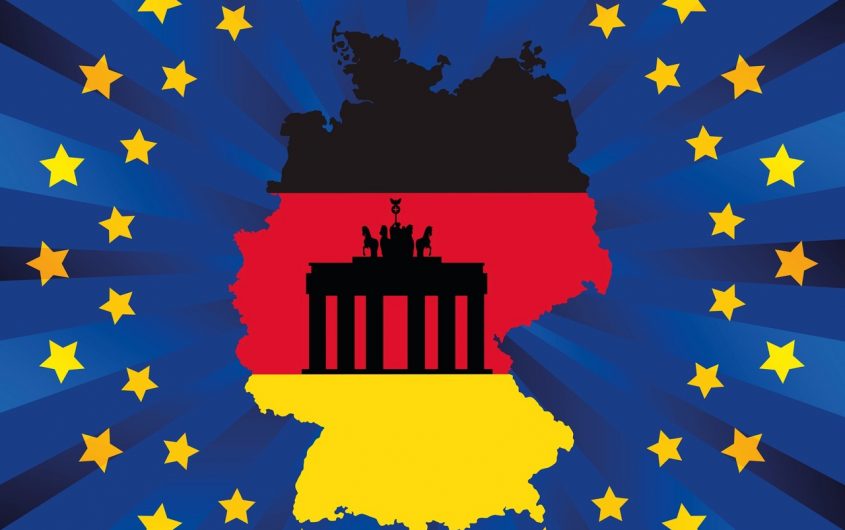
Creative Commons
Come on, Germany!

John Kornblum
AGI Trustee
John Kornblum is a senior counselor at the international law firm Noerr LLP and a former U.S. ambassador to Germany. He is a member of the AGI Board of Trustees.
The change of German governments in 1998 marked not only the defeat of Helmut Kohl, who was the longest serving Chancellor in the 20th century, but also the arrival of a new generation of German politicians and the first time an entirely new party, the Greens, had been part of a Federal Government. Under the circumstances of the time, this step was easily as dramatic as were the results of the Federal election on September, 2017.
The fact that in Germany there have only been three Chancellors since 1982 and only five since 1969 demonstrates how difficult it will be to repeat such new beginnings in 2018. And this year the sense of inertia is if anything likely to be greater, even though the pressure from inside and outside of Germany for radical change is increasing.
This fact becomes painfully evident as one reads the 28 page “Soundings Paper” agreed by the SPD and the CDU. It is an important document, because it demonstrates dramatically how ill prepared and unwilling the German Psyche is to take necessary political steps forward. In this case, acting in a “political” way means defining important issues clearly and objectively before presenting voters with an unvarnished description of the consequences resulting from various options.
The rest of the world is increasingly demanding that Germany take such concrete political decisions. Many partners believe that only Germany is in a position to save the often idealized liberal world order. Fear of a Germany which is too strong, has long been replaced by frustration and bitterness stemming from Germany’s increasing unwillingness to act.
More Power, More Money
German partners expect a clear indication of German willingness to support the stability and security of its European partners. That means: solidarity with both the EU and NATO. Above all, Germany is expected to commit more resources. But more robust contributions to European Union and to military defense are very unpopular among German voters, as the weak formulations on defense in the soundings paper demonstrate.
What the world wants from Germany is exactly what German leaders are unable to deliver. The question is, how can Germany “grow up” to the point where it demonstrates the ambition and self-confidence which is expected from Europe’s most important country?
Deflating the chorus of naysayers whose voices dominate German political discourse can be achieved only through the determined pursuit of a frank political dialogue. But in Germany politicians and even journalists who challenge conventional wisdom are first ostracized and then simply ignored.
What is needed is first, a clear discussion of the implications of the rapid, fundamental changes which are undermining the existing liberal world order, followed by a frank admission of how little Europeans can under current circumstances influence what is happening.
After 30 years of freedom and prosperity, European countries have nearly lost the ability to think and act strategically. To “deepen Europe,” as the favorite slogan goes, actually means to defend the status quo, come what may. If someone doesn’t act quickly to take the initiative and push unpopular options, Germany and Europe could easily decline into irrelevance.
Realism instead of Idealism
Secondly: If a new, more honest political dialogue were to unfold, it could be used as the foundation for a modernized political Narrative for Germany and Europe. At the moment, German is nearly isolated with its concept for Europe. Things have almost reached the point where the Federal Republic, as former Foreign Minister Frank-Walter Steinmeier put it, might be forced to choose between “protecting its economic principles and supporting European solidarity.”
Discussion of this dilemma openly in Germany remains a taboo. As is so often the case, Henry Kissinger can perhaps help us understand what is at stake. In his classic work Diplomacy, Kissinger the Realpolitikercomplains about the tendency of the United States to base its foreign policy on idealism instead of on realism.
The same actually holds true for post-war Europe as well. Following upon disastrous wars and debilitating economic crises, Europeans painted for themselves as ideal picture of Europe: unified, peace-loving and just. A “peace project” which “without an alternative,” which overcame all sins of the past by establishing a sort of preordained unity. What else could result from such a vision than an apolitical, impractical entity, devoid of all content.?
The dream of “Europe with one voice,” had the effect of suppressing Europe’s wonderful diversity and rich creativity.
Europe’s Moral Arrogance
In Kissinger’s view, American idealism was possible only in a country secure behind two oceans. After 1945, Europe enjoyed similar advantages. America offered both to finance reconstruction and to provide comprehensive military protection. This resulted in a Europe which became morally arrogant and strategically absent, while at the same time indulging in its vision of a new sort of soft power.
There has been much comment recently about statements by the Chancellor and the German Foreign Minister suggesting that Europe should seek more independence and autonomy from the United States.
This is unquestionably a positive vision. Each American President since at least Richard Nixon has demanded the same thing. But how and with what? Presently Europe stands almost helpless, lacking both a concept of its own strategy and the resources to carry it out. The Chancellor’s offer (in the midst of the election campaign) to play an active role in calming the situation in Korea was met overseas with sarcasm.
Europe still cannot get very far either economically or diplomatically without its Atlantic ties. To stand on the stage and make a declaration of independence will work only if one is ready and willing to assume responsibility and to act accordingly. Here we approach the heart of a new European narrative. Europe, and above all Germany, can no longer define their goals on the basis of normative visions. Results are more important than visions. A “good European” can no longer be defined primarily as a person who supports the goals of the Rome Treaty. He must instead be a person who works to make Europe ready for the digital age. A person who seeks out solutions and develops new practical ideas.
German, French and even British voters were stubborn – not because they rejected their nation or even the European Union. They turned against the established parties, because they could no longer sense any connection between their needs and the rhetoric of their governments.
But it’s going to become even more difficult. What good are stability and low government deficits if innovation, competitiveness, and economic progress are neglected? And why have a European security policy, if the member states can’t even secure their borders from uncontrolled waves of refugees?
Digitalization, and globalization are destructive forces. There will be winners, but also losers. Solidarity can work, only if it extends throughout Europe and the West.
Constructive Goals are Essential
In fact, it is just because of its past and it complex diversity that Europe could play an important role in defining global solidarity and democratic futures. Winning the Cold War was an equally complicated and often discouraging task. But in the end, it worked.
And if the American President won’t cooperate? There are enough partners in the United States who would be more than ready to work towards European goals. On the condition that there is a strategy which defines concrete goals and shows the way to achieve them. But the first step must be the goals.
This article originally appeared on page 6 of the January 22, 2018 edition of Die Welt. It is reprinted with the permission of the author.









